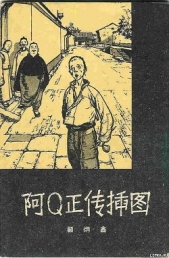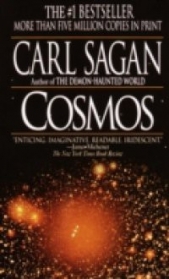Heretics of Dune

Heretics of Dune читать книгу онлайн
Frank Herbert was born in Tacoma, Washington, and educated at the University of Washington, Seattle. He worked a wide variety of jobs - including TV cameraman, radio commentator, oyster diver, jungle survival instructor, lay analyst, creative writing teacher, reporter and editor of several West Coast newspapers - before becoming a full-time writer.
In 1952, Herbert began publishing science fiction with "Looking for Something?" in Startling Stories. But his true emergence as a writer of major stature did not occur until 1965, with the publication of Dune. Dune Messiah, Children of Dune, God Emperor of Dune, Heretics of Dune, and Chapterhouse: Dune followed, completing the saga that the Chicago Tribune would call "one of the monuments of modern science fiction." Herbert is also the author of some twenty other books, including The Jesus Incident, The Dosadi Experiment, and Destination: Void. He died in 1986.
Внимание! Книга может содержать контент только для совершеннолетних. Для несовершеннолетних чтение данного контента СТРОГО ЗАПРЕЩЕНО! Если в книге присутствует наличие пропаганды ЛГБТ и другого, запрещенного контента - просьба написать на почту [email protected] для удаления материала
Heretics of Dune
When I was writing Dune
... there was no room in my mind for concerns about the book's success or failure. I was concerned only with the writing. Six years of research had preceded the day I sat down to put the story together, and the interweaving of the many plot layers I had planned required a degree of concentration I had never before experienced.
It was to be a story exploring the myth of the Messiah.
It was to produce another view of a human-occupied planet as an energy machine.
It was to penetrate the interlocked workings of politics and economics.
It was to be an examination of absolute prediction and its pitfalls.
It was to have an awareness drug in it and tell what could happen through dependence on such a substance.
Potable water was to be an analog for oil and for water itself, a substance whose supply diminishes each day.
It was to be an ecological novel, then, with many overtones, as well as a story about people and their human concerns with human values, and I had to monitor each of these levels at every stage in the book.
There wasn't room in my head to think about much else.
Following the first publication, reports from the publishers were slow and, as it turned out, inaccurate. The critics had panned it. More than twelve publishers had turned it down before publication. There was no advertising. Something was happening out there, though.
For two years, I was swamped with bookstore and reader complaints that they could not get the book. The Whole Earth Catalog praised it. I kept getting these telephone calls from people asking me if I were starting a cult.
The answer: "God no!"
What I'm describing is the slow realization of success. By the time the first three Dune books were completed, there was little doubt that this was a popular work - one of the most popular in history, I am told, with some ten million copies sold worldwide. Now the most common question people ask is: "What does this success mean to you?"
It surprises me. I didn't expect failure either. It was a work and I did it. Parts of Dune Messiah and Children of Dune were written before Dune was completed. They fleshed out more in the writing, but the essential story remained intact. I was a writer and I was writing. The success meant I could spend more time writing.
Looking back on it, I realize I did the right thing instinctively. You don't write for success. That takes part of your attention away from the writing. If you're really doing it, that's all you're doing: writing.
There's an unwritten compact between you and the reader. If someone enters a bookstore and sets down hard earned money (energy) for your book, you owe that person some entertainment and as much more as you can give.
That was really my intention all along.
Frank Herbert
***
Most discipline is hidden discipline, designed not to liberate but to limit. Do not ask Why? Be cautious with How? Why? leads inexorably to paradox. How? traps you in a universe of cause and effect. Both deny the infinite.
"Taraza told you, did she not, that we have gone through eleven of these Duncan Idaho gholas? This one is the twelfth."
The old Reverend Mother Schwangyu spoke with deliberate bitterness as she looked down from the third-story parapet at the lone child playing on the enclosed lawn. The planet Gammu's bright midday sunlight bounced off the white courtyard walls filling the area beneath them with brilliance as though a spotlight had been directed onto the young ghola.
Gone through! the Reverend Mother Lucilla thought. She allowed herself a short nod, thinking how coldly impersonal were Schwangyu's manner and choice of words. We have used up our supply; send us more!
The child on the lawn appeared to be about twelve standard years of age, but appearance could be deceptive with a ghola not yet awakened to his original memories. The child took that moment to look up at the watchers above him. He was a sturdy figure with a direct gaze that focused intently from beneath a black cap of karakul hair. The yellow sunlight of early spring cast a small shadow at his feet. His skin was darkly tanned but a slight movement of his body shifted his blue singlesuit, revealing pale skin at the left shoulder.
"Not only are these gholas costly but they are supremely dangerous to us," Schwangyu said. Her voice came out flat and emotionless, all the more powerful because of that. It was the voice of a Reverend Mother Instructor speaking down to an acolyte and it emphasized for Lucilla that Schwangyu was one of those who protested openly against the ghola project.
Taraza had warned: "She will try to win you over."
"Eleven failures are enough," Schwangyu said.
Lucilla glanced at Schwangyu's wrinkled features, thinking suddenly: Someday I may be old and wizened, too. And perhaps I will be a power in the Bene Gesserit as well.
Schwangyu was a small woman with many age marks earned in the Sisterhood's affairs. Lucilla knew from her own assignment-studies that Schwangyu's conventional black robe concealed a skinny figure that few other than her acolyte dressers and the males bred to her had ever seen. Schwangyu's mouth was wide, the lower lip constricted by the age lines that fanned into a jutting chin. Her manner tended to a curt abruptness that the uninitiated often interpreted as anger. The commander of the Gammu Keep was one who kept herself to herself more than most Reverend Mothers.
Once more, Lucilla wished she knew the entire scope of the ghola project. Taraza had drawn the dividing line clearly enough, though: "Schwangyu is not to be trusted where the safety of the ghola is concerned."
"We think the Tleilaxu themselves killed most of the previous eleven," Schwangyu said. "That in itself should tell us something."
Matching Schwangyu's manner, Lucilla adopted a quiet attitude of almost emotionless waiting. Her manner said: "I may be much younger than you, Schwangyu, but I, too, am a full Reverend Mother." She could feel Schwangyu's gaze.
Schwangyu had seen the holos of this Lucilla but the woman in the flesh was more disconcerting. An Imprinter of the best training, no doubt of it. Blue-in-blue eyes uncorrected by any lens gave Lucilla a piercing expression that went with her long oval face. With the hood of her black aba robe thrown back as it was now, brown hair was revealed, drawn into a tight barette and then cascading down her back. Not even the stiffest robe could completely hide Lucilla's ample breasts. She was from a genetic line famous for its motherly nature and she already had borne three children for the Sisterhood, two by the same sire. Yes - a brown-haired charmer with full breasts and a motherly disposition.
"You say very little," Schwangyu said. "This tells me that Taraza has warned you against me."
"Do you have reason to believe assassins will try to kill this twelfth ghola?" Lucilla asked.
"They already have tried."
Strange how the word "heresy" came to mind when thinking of Schwangyu, Lucilla thought. Could there be heresy among the Reverend Mothers? The religious overtones of the word seemed out of place in a Bene Gesserit context. How could there be heretical movements among people who held a profoundly manipulative attitude toward all things religious?
Lucilla shifted her attention down to the ghola, who took this moment to perform a series of cartwheels that brought him around full circle until he once more stood looking up at the two observers on the parapet.
"How prettily he performs!" Schwangyu sneered. The old voice did not completely mask an underlying violence.






















